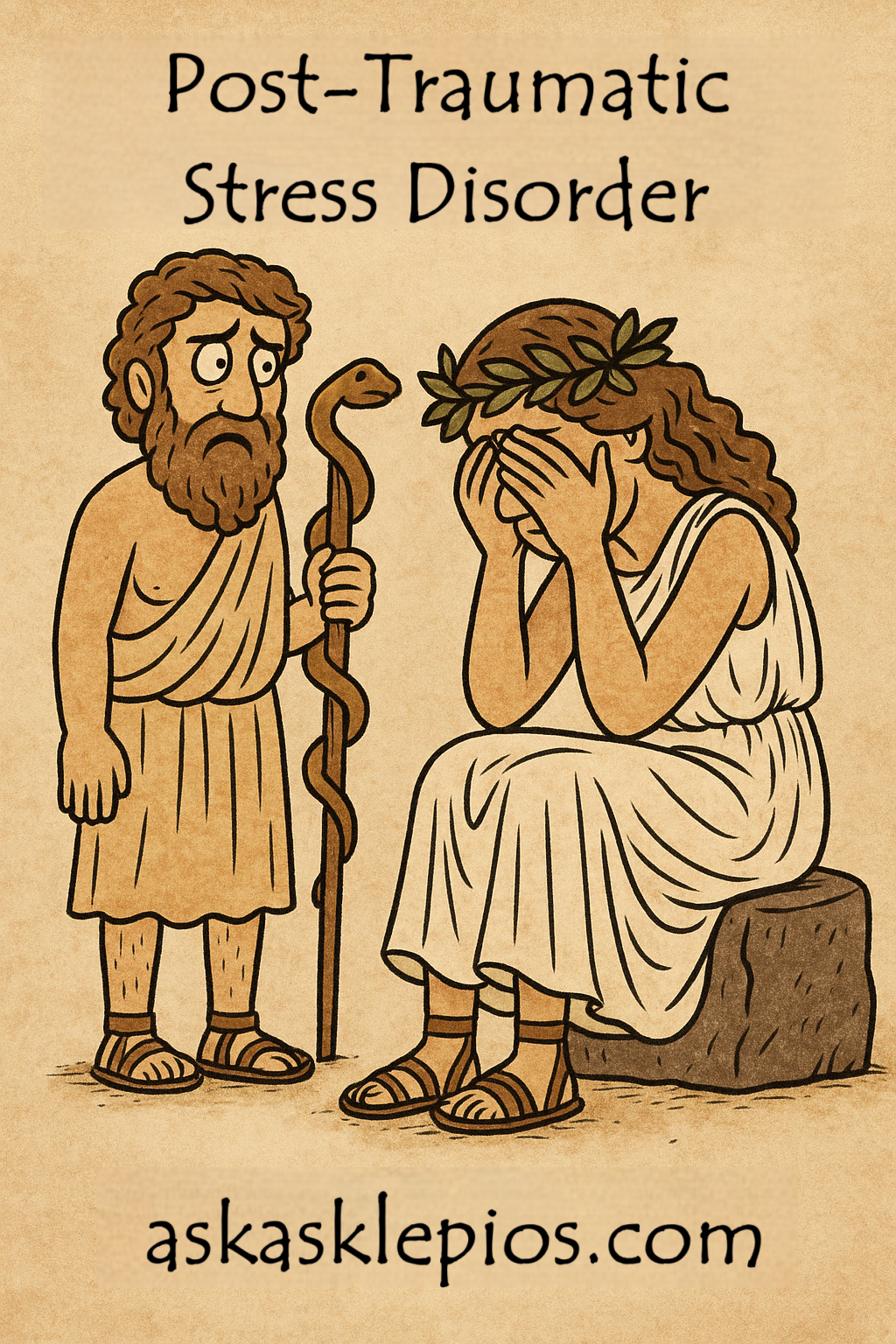Post-Traumatic Stress Disorder (PTSD): Symptoms, Causes and Treatment
🧠 What Is Post-Traumatic Stress Disorder?
Post-Traumatic Stress Disorder (PTSD) is a mental health condition that can develop after experiencing or witnessing a life-threatening or deeply distressing event. These events may include war, physical or sexual assault, natural disasters, serious accidents, childhood abuse or sudden losses.
PTSD can significantly impact emotional, psychological and even physical well-being. While some people recover over time, others may develop persistent symptoms that require professional care. Early recognition and intervention are key to effective recovery.
🔍 Common Symptoms of Post-Traumatic Stress Disorder
PTSD symptoms typically fall into four major categories and may appear within weeks or even months after the trauma:
1. Intrusive Memories
- Recurrent, unwanted distressing memories or flashbacks
- Nightmares or disturbing dreams
- Intense psychological or physical reactions to reminders of the trauma
2. Avoidance Behavior
- Avoiding thoughts, feelings or conversations about the event
- Avoiding people, places or activities that are reminders of the trauma
- Emotional numbness and detachment
3. Hyperarousal and Reactivity
- Constant alertness or being “on edge”
- Sleep disturbances or insomnia
- Irritability, anger outbursts or difficulty concentrating
- Exaggerated startle response
4. Negative Thoughts and Mood Changes
- Feelings of guilt, shame or hopelessness
- Loss of interest in previously enjoyed activities
- Social withdrawal and emotional detachment
- Difficulty experiencing positive emotions
🧪 What Causes Post-Traumatic Stress Disorder?
PTSD can affect anyone, but certain factors increase susceptibility:
- Trauma Severity & Duration: Long-term or repeated exposure to trauma increases risk.
- Personal or Family Mental Health History: A genetic predisposition to anxiety or depression.
- Lack of Social Support: Isolation after trauma can worsen symptoms.
- Neurochemical Imbalances: Trauma may alter brain function related to fear, memory, and stress regulation.
💡 How Is Post-Traumatic Stress Disorder Treated?
Successful PTSD treatment often combines therapy, medication and supportive lifestyle practices.
1. Psychotherapy
- Cognitive Behavioral Therapy (CBT): Helps identify and change negative thought patterns.
- EMDR (Eye Movement Desensitization and Reprocessing): Reduces the emotional intensity of traumatic memories.
- Trauma-Focused Therapy: Provides a safe space to process trauma and rebuild coping skills.
2. Medications
- Antidepressants (SSRIs/SNRIs): Help regulate mood and reduce anxiety.
- Sleep aids and anti-anxiety medications: Short-term use may ease severe symptoms.
3. Complementary Approaches
- Mindfulness, yoga and breathwork
- Art therapy, journaling, and creative expression
- Peer support groups and trauma recovery communities
🧬 Healing Through the Wisdom of Asklepios
In Ancient Greece, healing was a holistic process involving the body, mind and soul. At the sanctuaries of Asklepios, patients underwent rituals, dream therapy (oneirotherapy), and nature-based healing. PTSD may be a modern term, but its roots echo the timeless wisdom that true healing begins within — by restoring balance, peace and meaning to the self.
✅ Preventive Strategies and Self-Care Tips
- Seek professional help early after trauma
- Build a strong support system
- Practice grounding and relaxation techniques
- Maintain regular sleep and eating patterns
- Avoid self-blame and cultivate self-compassion
📌 Conclusion: Recovery Is Possible
Post-Traumatic Stress Disorder does not define a person. With the right treatment, support and resilience, individuals can rebuild their lives. Healing is not linear — it’s a courageous journey. And just like in Asklepios’s philosophy, every step toward wholeness is a triumph of the human spirit.
Anxiety All Topics
[asklepios_alfabetik_sayfali slug=”anxiety”]

You are currently on the: "Post-Traumatic Stress Disorder" page.
This content belongs to the following health categories:
Asklepios has gathered content on the topic of Mental Health , separate from the category pages, for health-related information:
Mental Health

